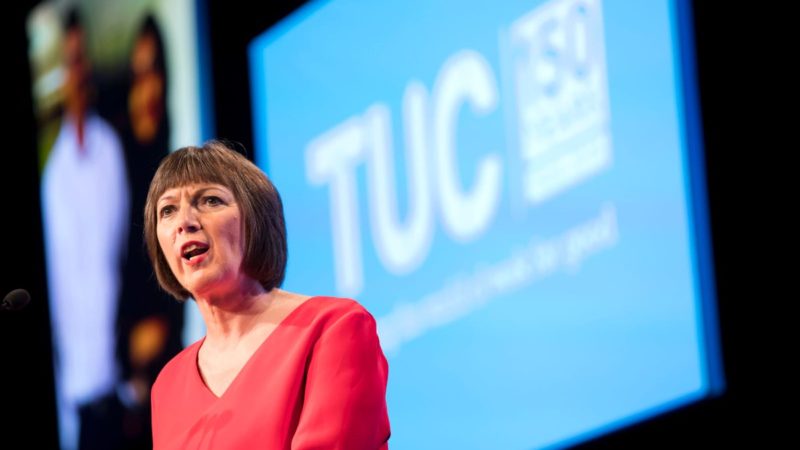
Two in five Black and minority ethnic (BME) workers have experienced overt racism at work in the last five years. But 80% did not report it for fear of it not being taken seriously by managers or of the negative impact reporting it would have on their own working lives.
Workers told us that ‘hidden’ racism affected their day-to-day working life – from being denied training and promotion opportunities to having to take less popular shifts and book holidays at less popular times. This is institutional racism, and it still shapes too many working lives. These are the key findings of the largest ever survey of BME workers in the UK, published by the TUC as part of our anti-racism taskforce.
In 2020, we saw an unprecedented wave of global uprisings demanding an end to racism, spurred by the brutal murder of George Floyd under the banner of Black Lives Matter. Two years on from the world’s overdue awakening to the lived experience of racism, the impetus for change from employers and the government has withered. The government’s fla
Trade unions, by contrast, have spent the last two years looking at our own practice and record and creating an action plan to improve how we represent, organise, employ and campaign with and for Black workers. Our anti-racism taskforce, chaired by Dr Patrick Roach, gathered evidence from across the movement, and at TUC Congress this week, unions will adopt the recommendations.
Over the past two years, unions have conducted an unflinching examination of our own practices. The union movement is rightly proud of its record in winning for Black workers – but we also have to be honest with ourselves that, at times, we found our movement wanting.
The work of the TUC’s anti-racism taskforce will conclude at Congress. Now it’s time for the hard work of building an anti-racist trade union movement and dismantling the structures that deny Black workers fairness and equality at work.
Our anti-racism manifesto for the union movement commits unions to the active work of anti-racism. We will put race equality at the heart of collective bargaining, asking our officers and reps to consider what can be won to further race equality in negotiations with employers. We will grow and diversify our membership, making the case that every Black worker needs a union and ensuring that Black workers see themselves and their concerns reflected in trade unions. We will develop Black reps, activists and leaders.
We will recommit ourselves to campaigning for social and economic justice for BME workers. The seemingly inexorable rise of insecure forms of work hits BME workers disproportionately, so unions will centre the experiences of Black workers in the fight to ban zero-hours contracts and other forms of insecure work and in campaigns for higher wages and fair pay agreements.
We will seek a government commitment to comprehensive monitoring of ethnicity pay gaps in workplaces. We will continue to hold ministers accountable for their lack of progress on equality and seek strong enforcement to improve BME workers’ experiences at work. And we will make sure that the TUC and member unions bring the voices and experiences of Black workers to the Covid-19 public inquiry.
The fight for the rights of BME workers includes those working for unions. So we will lead by example, with unions becoming exemplary employers of BME staff in truly inclusive workplaces.
It is for us all to stand and unite against racism. Tackling the issues that face BME workers is a collective responsibility. Too often, BME workers and BME trade unionists are expected to carry the burden of solving racism alone. But no longer: this is all of our business.
As Congress meets in Brighton, we make these commitments to one another, to the thousands of Black members of unions and to the millions of Black workers in the UK. And we renew our commitment to anti-racism. When we meet next year and in years to come, hold us accountable for our actions.
Whatever our background, race or religion, we all deserve a decent job and respect at work. Racists will try to divide working-class people from one another. But that makes us all weaker. Instead, when Black and white workers unite through our unions, we are unstoppable.




More from LabourList
Scottish Parliament elections 2026: Full list of Labour candidates for Holyrood
‘As metro mayors gain power, Labour must tighten political accountability’
Letters to the Editor – week ending 22 February 2026